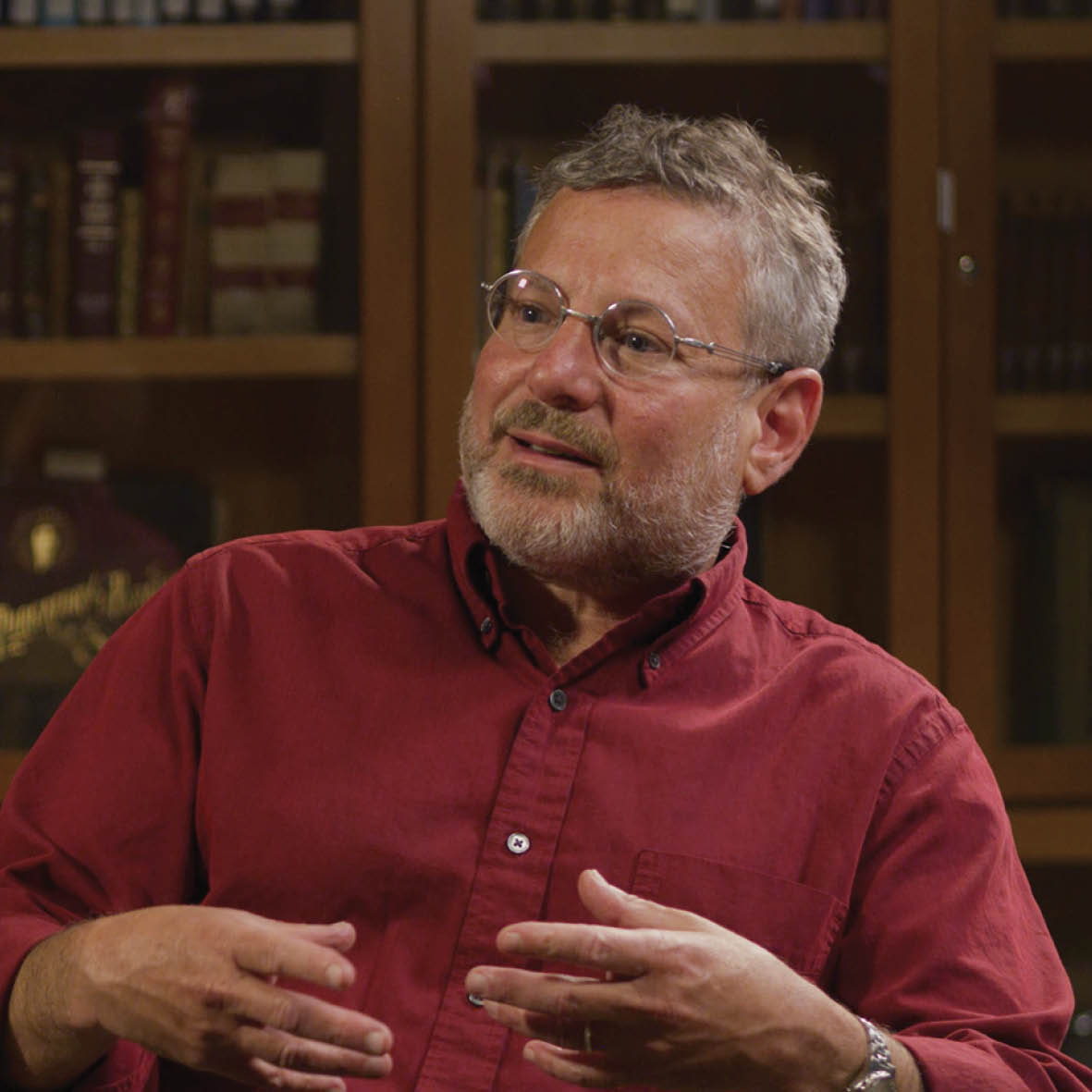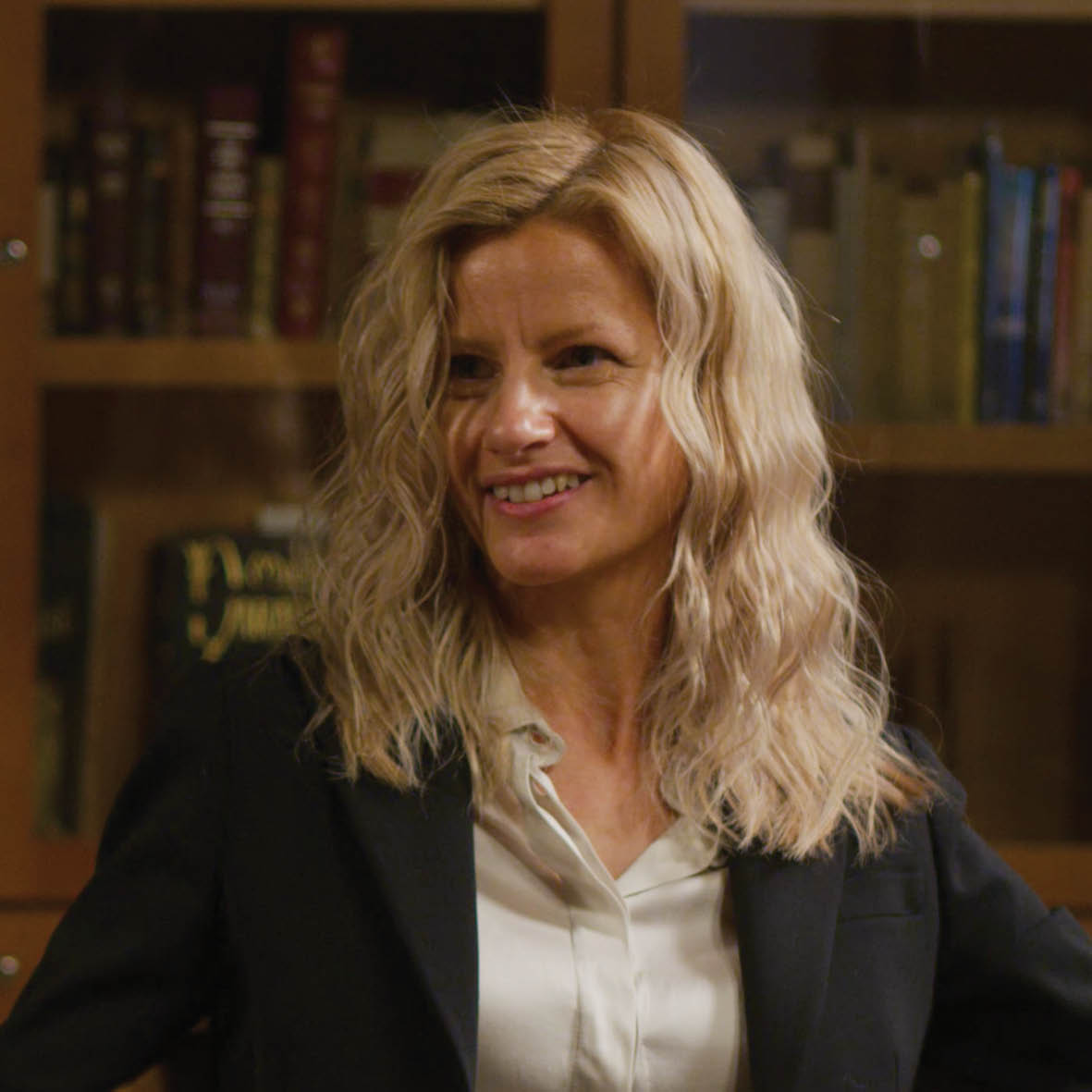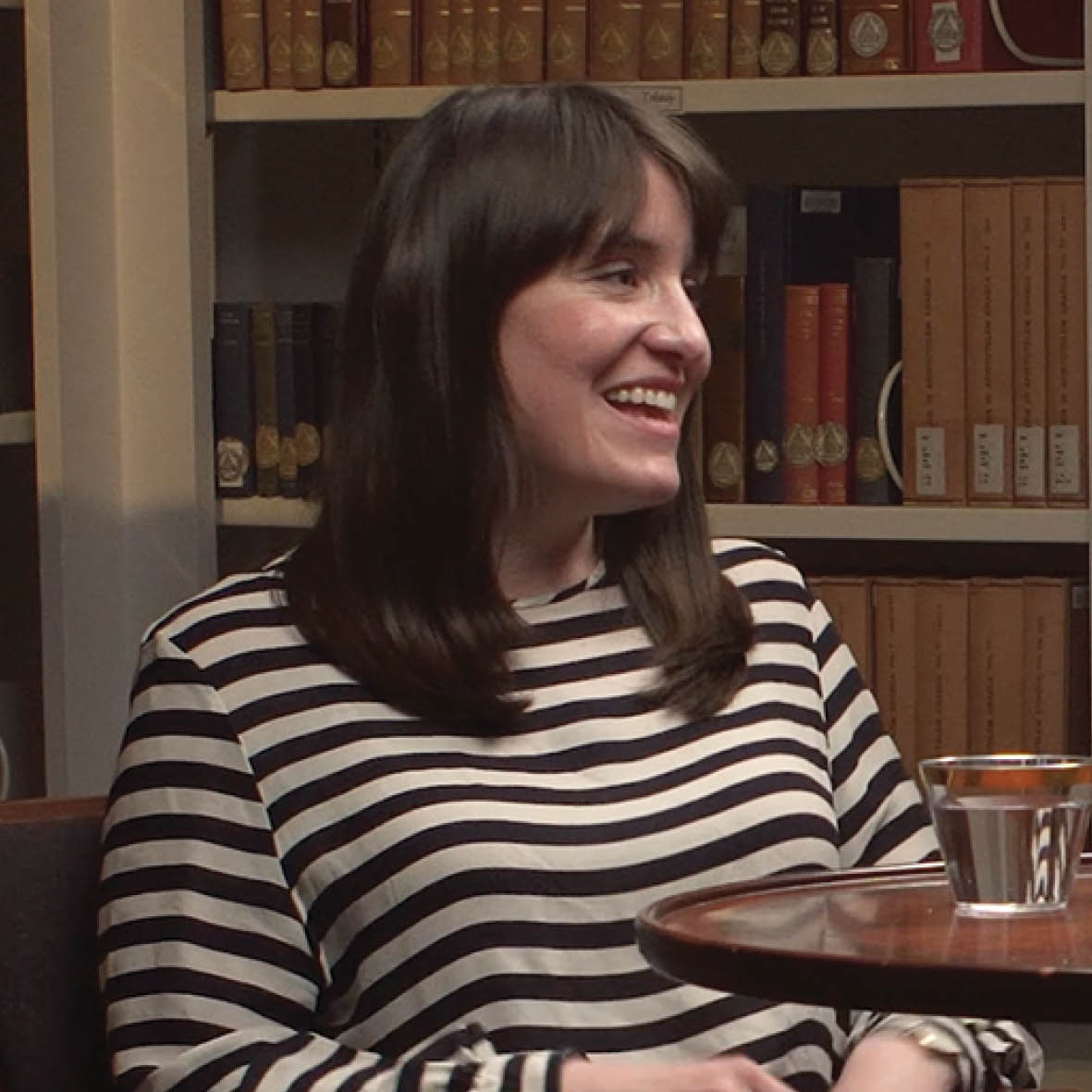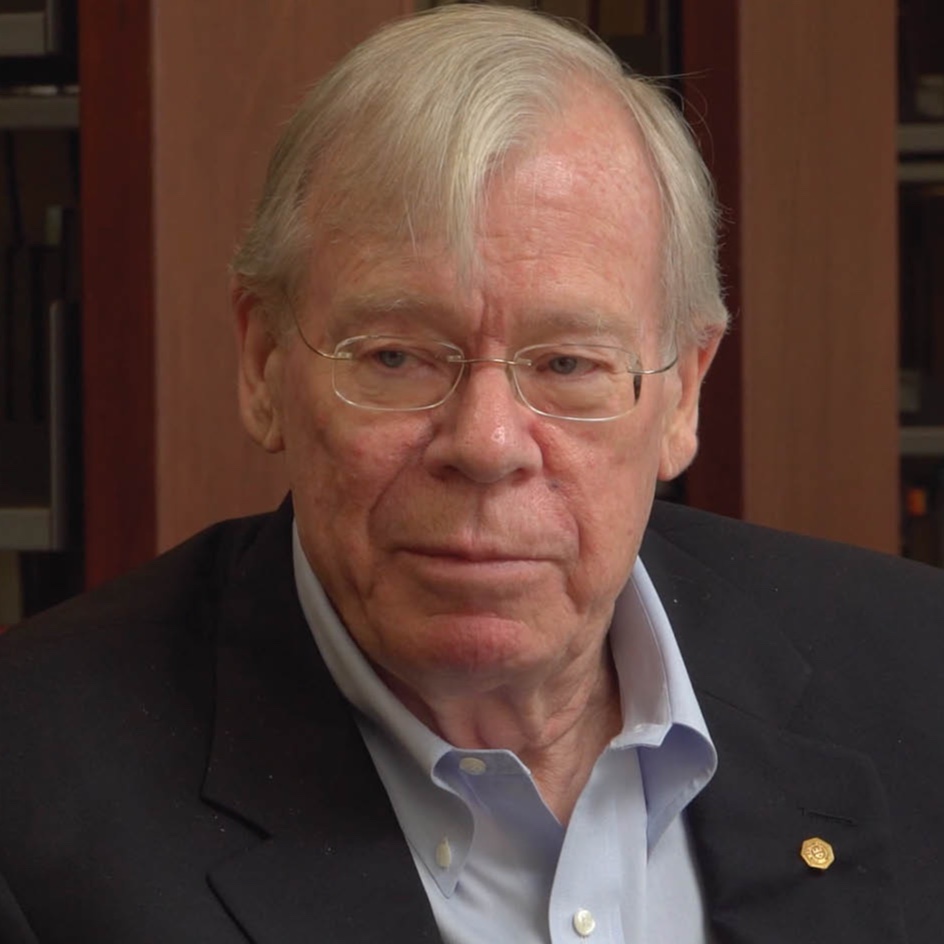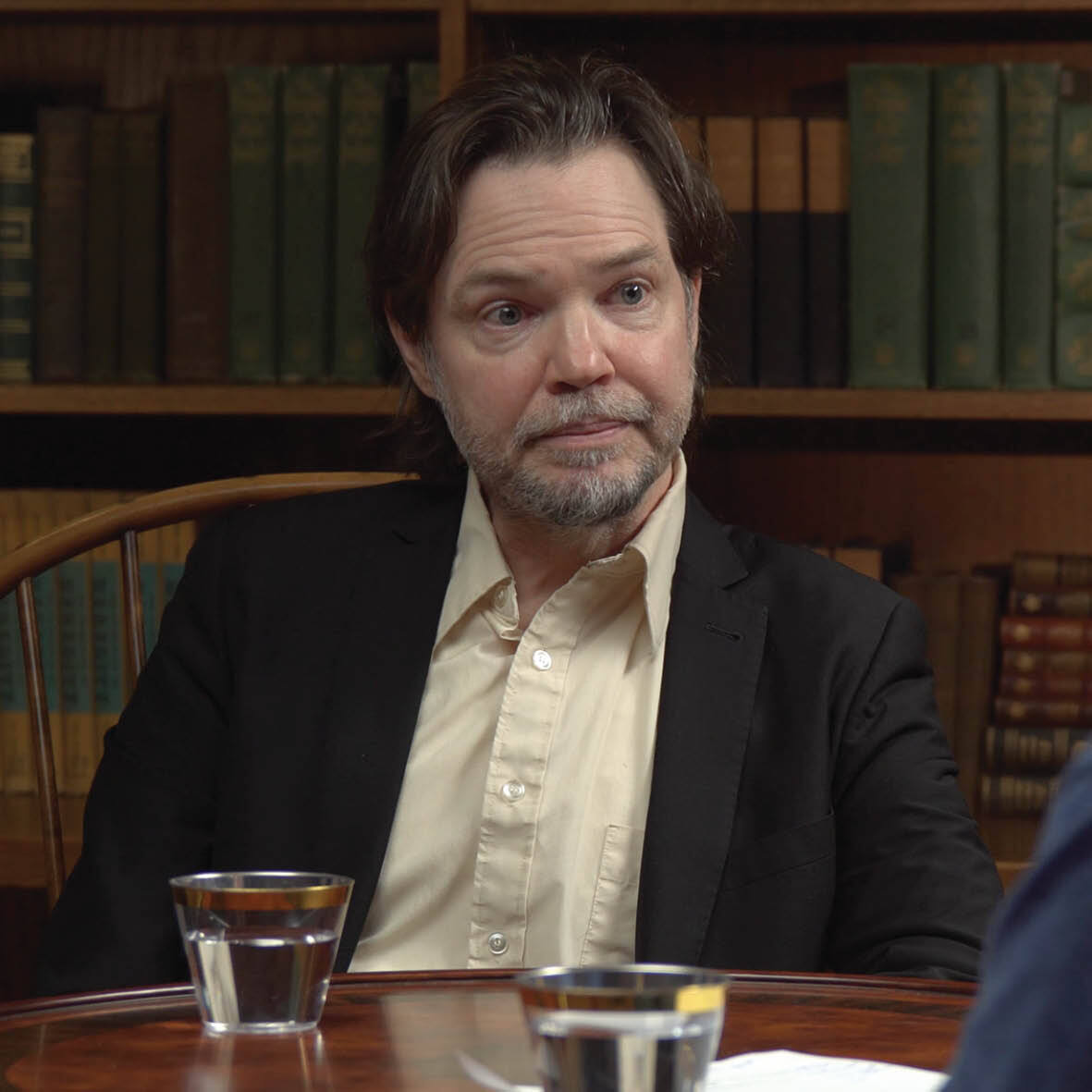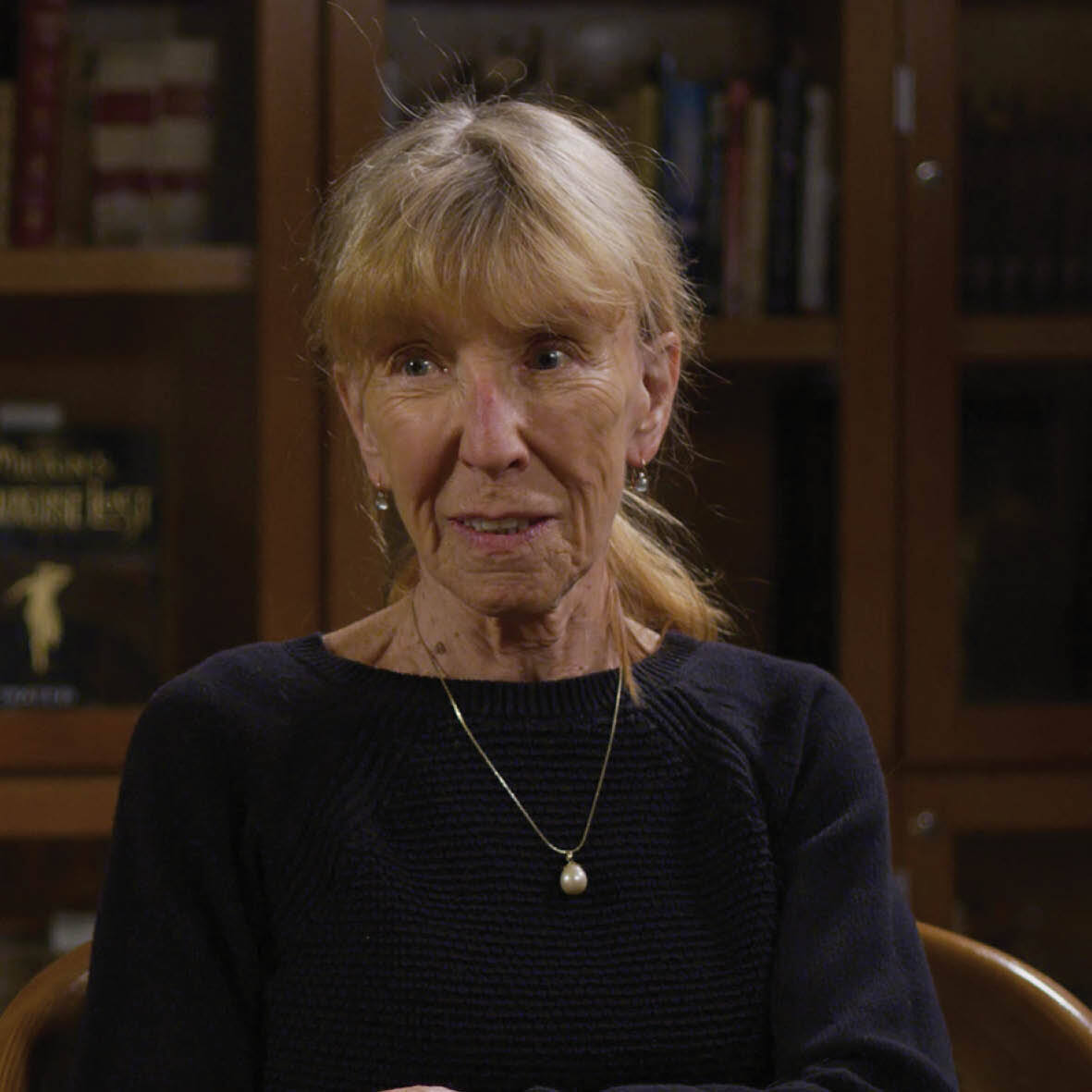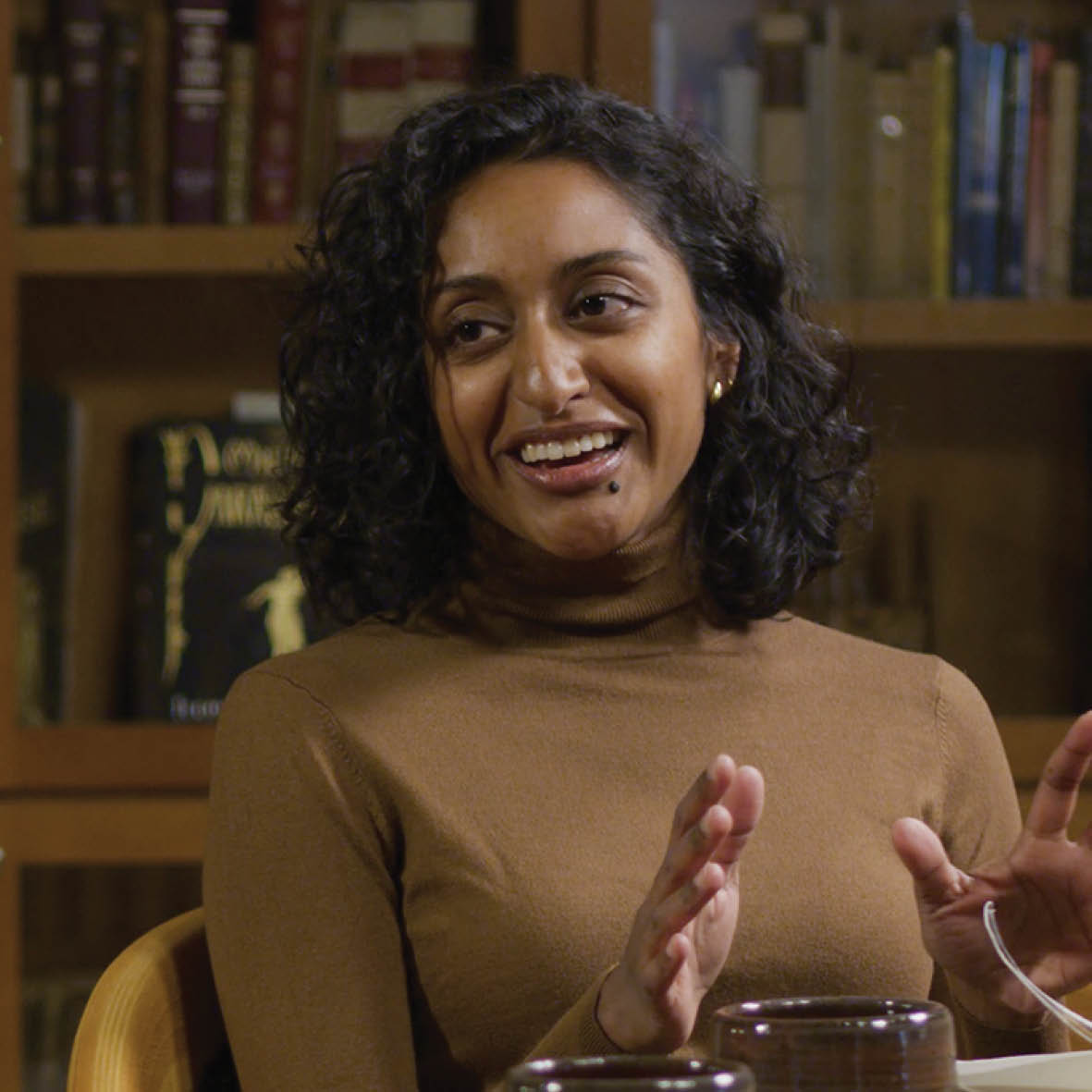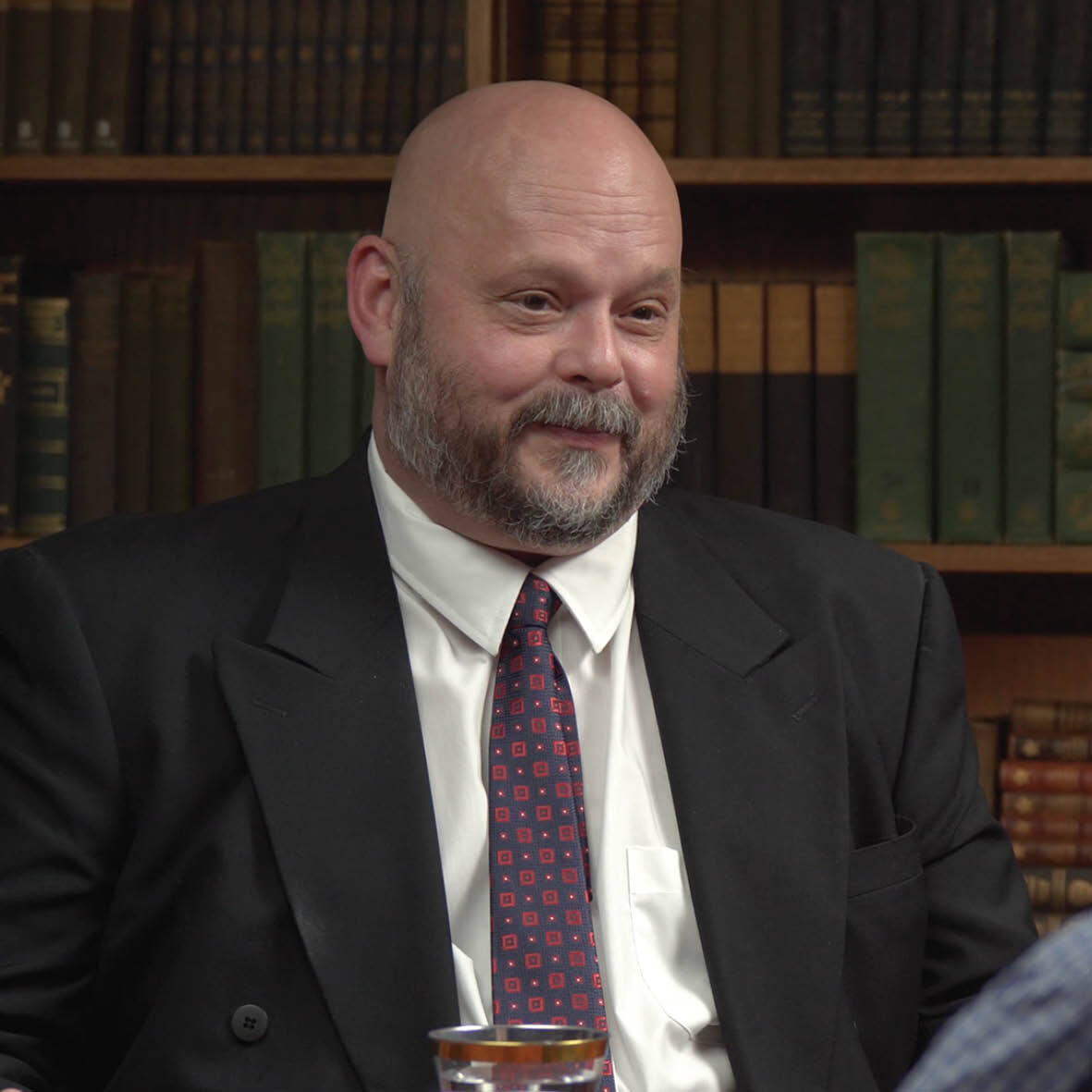Discover Continuing the Conversation: a Great Books podcast by St. John’s College
Continuing the Conversation: a Great Books podcast by St. John’s College

Continuing the Conversation: a Great Books podcast by St. John’s College
Author: St. John’s College
Subscribed: 15Played: 89Subscribe
Share
© Copyright 2023 All rights reserved.
Description
Enter a conversation where questions are more important than answers. Where curiosity and connection trump certainty and combat. Where history’s great thinkers provide a springboard for us to jump into big questions together. Enter Continuing the Conversation: our college’s antidote to the blustery world just beyond our library doors.
21 Episodes
Reverse
In the ancient world, art and religion provided a sense of meaning and order that was upended by science and technology. Today, our world is defined by consumerism, self-expression and a gnawing lack of meaning. Can the contemplative life of the mind play a central role in addressing this void? What about the role of its supposed counterparts—doing, making, and simply being? This episode seeks to untangle the human desire for meaning and coherence, the reality of disorientation and disorder, and the perhaps false dichotomy between the life of the mind and the simple act of living itself. Featuring Santa Fe host Sarah Davis, also an artist, and tutor David McDonald, also a photographer, the two begin their conversation exploring the order and power of harmonic music, stumble into the disorder of Virginia Woolf’s The Waves, and eventually find some inspiration in the humble unity of Kierkegaard’s knight of faith.
This episode takes us through a close reading of Shakespeare’s Sonnet 94, which many consider to be his most enigmatic. Annapolis tutor Eva Brann brings a clear argument to the poem, taking us quatrain by quatrain through the poet’s descriptions of the beloved’s power over the poet through cold detachment and contingent self-mastery. For Brann, the sonnet provides exemplary evidence that “love and logic, passion and thinking, are closely intertwined.” The existence of the sonnet also masterfully enacts its revenge on the stone-cold beloved, whose legacy is defined by the sonnet itself, and its lingering concluding couplet: “For sweetest things turn sourest by their deeds; lilies that fester smell far worse than weeds.” We also explore the idea that the mastery of logic and language—when kindly and thoughtfully wielded—can prevent the passions of human nature from issuing in inarticulate violence and corruption. This episode is hosted by Louis Petrich.
The power and beauty of Homer’s imagery in the Iliad is undeniable, and his scenes of battle often prompt vexing questions about ancient and modern virtues. Can killing and dying in war be beautiful? Is a just cause required for glory to be gained? Is war a courageous way of fulfilling human nature and, ultimately, of embracing the reality that death awaits us all?
This episode, in which Annapolis host Louis Petrich and tutor Erica Beall delve into the dramatic contrasts that make Homer’s work powerful and war potentially beautiful, invites us to question our own modern perspectives on this ancient text. Those perspectives may reflect Shakespeare’s Trojan war play, Troilus and Cressida, which shows the reality of war as ugly, its fabled glory a concoction of poets that charms men into fighting. And yet Homer's Iliad remains a perennial favorite of Johnnies, who often return to it multiple times after graduation. In fact, it is the only text in Continuing the Conversation to headline two episodes.
Socrates says that the intellectual practice of philosophy is a practice for dying. But what if the body is the vessel that can best prepare us for the end of life? In this episode, martial artists Krishnan Venkatesh and Claudia Hauer, both tutors in Santa Fe, sit down to discuss the problems of a philosophical separation of mind and body.
Through the writings of two essayists—the 13th-century Japanese author Dogan and the 16th-century French author Montaigne—Venkatesh and Hauer explore how physical presence and pain can take us out of our minds and into a practice that prepares us for the vicissitudes of life and the certainty of death through an integration of mind, body, and soul.
If one could perfectly translate a literary work, would that translation make the original idea of the author universally understood by all readers? Or do the greatest translations bring new layers of creativity and meaning to a work, making its latent textures relevant for another culture or time—such as feminist translations of the Odyssey and Christian translations of Plato—even as they may dampen the original intentions of the author?
In this episode, Annapolis tutor Stella Zhu, who is also a translator of Chinese poetry, joins host Louis Petrich to discuss the complexities of translation, including the role of interpretation and emotion, as humans attempt to understand and communicate ideas across linguistic boundaries through literary translation and dialogue with each other.
Their conversation, which itself exemplifies the mystery of communication, continues by exploring the idea that perhaps math and music provide universal languages that literary works never approach; that translating oneself to others may hold the same challenges as translating literary works into new languages; and that multiplicities of understanding may be an inescapable, and perhaps beneficial condition of human life.
What is the relationship between sports and war? And what is seminar's relationship to both? In this episode, Santa Fe host Sarah Davis and tutor Julie Reahard talk about Reahard’s passion for sports, her long-running commitment to the St. John's ice hockey team, and whether her experiences on the court are similar to those that play out on the battlefield of great texts like the Iliad and War and Peace.
As the conversation continues, the two stumble across an unexpected connection to sports and war: the competitive instincts that can arise in seminar, in which participants desire to vanquish their ideological opponents; these instincts are common and real, but also stand in tension with the college's dialectical approach to conversation.
From conversational cooperation to sportsmanlike competition to brutal war, this episode takes us on a journey through the best and worst of human nature.
Why is it difficult for people to talk to one another? Annapolis tutor Howard Zeiderman proposes a likely culprit: the difficulty that most humans have with listening. In this episode, Zeiderman joins host Louis Petrich to discuss the importance of learning to hear and understand the language of those who are unlike us, of supporting quieter and less represented voices in conversation, and of building true community through the committed practice of listening.
The two explore the value of listening through the lens of the college, which cultivates the practice in seminar, and through the lens of America, where polarization has caused a dangerous breakdown in communication.
In the Gettysburg Address, President Lincoln proclaimed that soldiers gave their life at the Battle of Gettysburg for a “new birth of freedom.” But what did he mean? In this episode, Annapolis tutor George Russell joins host Louis Petrich in a conversation that on the surface explores important Lincoln speeches and ideas within their Civil War context. But on a deeper level, it is a discussion about the often-conflicting ideas of freedom and equality, the complexity of justice, and the value—and difficulty—of freeing one’s mind from the shackles of accepted notions. It is also a conversation between two tutors of different races, practicing the art of questioning authoritative opinions, particularly those concerning race in America: how did the Civil War bring about a new birth of freedom? What about the lynchings, segregation, and deep economic inequalities that followed? Did Lincoln foresee that the nation would need multiple new births to maintain its ideals and opportunities for all citizens? How has—and hasn’t—the nation realized Lincoln's vision at Gettysburg?
Is it important to feel when we read literature? Or when we learn math and science? On a related front, what is the role of order and disruption in literature, in life, and in our observation of the universe? In this episode, Santa Fe host Sarah Davis and tutor Grant Franks explore the meaning and value of feeling, then launch into a wide-ranging conversation about the ways in which emotion, order, chaos, and discovery seem central to great literature, to world-changing shifts in math and science, and to one’s own sense of self and belonging. Through dramatic moments and characters in the Iliad, the Aeneid, and The Brothers Karamazov to Newton’s Principia Mathematica and Nietzsche’s Beyond Good and Evil, this episode investigates what makes us feel and how to feel about deep feeling.
Why do writers travel? Why do some authors write their most influential works in foreign countries? Does the unknown bring new insights and transformation, or do new lands provide nothing more than romantic myths for the imagination? In the essay Self-Reliance, Emerson says "Traveling is a fool's paradise . . . My giant goes with me wherever I go." Is he right? Or is getting lost the best way of finding higher truths? In this episode, Santa Fe host Krishnan Venkatesh joins tutor David Carl in a conversation that explores Carl's journey as a writer who travels alongside these larger, universal questions, taking us from his time as a boy in rural Oregon, to Paris, to India, and ultimately back home, to ponder these questions at St. John’s College.
Annapolis tutor Chester Burke has spent many years teaching and shaping the laboratory program of St. John’s College, where mathematics and science are studied as liberal arts. This means that all students read the foundational texts of some of history’s greatest mathematical and scientific minds, in their historical order, while performing original observations, demonstrations, and experiments. These activities allow students to witness great scientific thinkers and experimenters provide the building blocks, old and new, for our theoretical knowledge of nature. In this episode, Burke joins host Louis Petrich for a conversation on the college’s unique approach to scientific and mathematical study.
As such, it includes a standard and beloved practice at St. John’s College—a mathematical chalkboard demonstration—to accompany a dive from classical physics into the startling world of quantum mechanics. Authors touched upon include Galileo, Leibniz, Maxwell, Thompson, Schrödinger, Bohr, Einstein, Heisenberg, Faraday, and Descartes.
Sophrosyne is the ancient Greek word for moderation, which is one of the four classical virtues. But what does Socrates’ definition of moderation really mean and how is it connected to another classical virtue: courage? Santa Fe tutor Michael Golluber explores this question by juxtaposing Plato’s Charmides against his own passion for the good life, which he defines as consisting of good food, good wine, good company, and good conversation. Together with host Krishnan Venkatesh Golluber seeks to untangle the complexity of sophrosyne—a virtue that often masks a desire for order and control—revealing how difficult it is to both understand and attain.
What is home? Santa Fe tutor Paola Villa, Italian by birth, begins this episode with the Elvis Presley cliché “Home is where the heart is,” and then clarifies to host Sarah Davis that the heart is the crossroads between the stomach and the brain. From there, Villa shares French poet Ponge’s poem “Snails,” which describes the way that snails devour the land they cross, defecate on that land, and are fed by that land—all while carrying their homes on their backs. For Villa, this metaphor describes her own journey and conception of home: devouring the food and ideas of a new place, which transform her in return, while remaining deeply Italian.
In Villa’s native tongue, “to know” and “to taste” have the same root, a reminder that food and mind are one, each mediated through the tongue. And the table, draped in a tablecloth, is what brings one’s family and community together—a metaphor that she also ascribes to the St. John’s seminar table, where hungry seekers come together in community to devour ideas, and to be devoured in return. This episode, rich in metaphor and poetry, connects gastronomy, language, thought, and community to a theme to which all humans can relate: wanting to know and be at home in the world.
Is a book dead or alive? Can one be friends with a book or with the author behind the book? What are the promises and hazards of such friendships? Should we seek stability, loyalty, and reassurance of our deepest convictions and impulses? Or do real friends provide conflict, mystery, and depth, challenging and surprising us continually with new insights and contradictions? What if a friendship isn’t dyadic in nature but triadic, requiring a third element to complete it—such as fine wine or a shared spiritual yearning?
Are some friends more suited to lifelong friendship than others and, if so, why? In this episode, Annapolis tutor Mary Elizabeth Halper and host Zena Hitz explore the very personal relationships that humans have with books, and with the complex questions they bring up in all of us.
Liberal education is education for freedom. What kind of freedom does it or should it cultivate? Freedom without discipline is anarchy, and life without freedom is tyranny—or so says Annapolis tutor David Townsend, who joins host Zena Hitz in this probing conversation into the nature of freedom, the ways in which individuals and communities can cultivate it, and the need for self-discipline in tempering our freedoms. The two also discuss how a liberal education can free minds from the prejudices connatural to all human communities, and how the St. John’s education strives to do just that.
What is it to write? What roles do ceremony, beauty, and material play in the act of writing? Not only is The Pillow Book of Sei Shōnagon an early classic of Japanese literature, written in the 10th century by a lady of the Heian-era court, it is also—five hundred years before Montaigne— the world's first sustained portrayal of an individual self as she lives, thinks, and feels from day to day. A genre-bending mix of poems, lists, essays, and anecdotes, Shōnagon's original work was composed on Empress-provided fine paper and expresses as much delight in the materials and physical activity of writing as in the human dramas and exquisite moments of courtly life. In this episode, Santa Fe host Krishnan Venkatesh and tutor Ron Wilson explore the power of the material conditions of writing—the handmade ink, the rare pens, the costly paper, the social culture of the highly insular court—in energizing and focusing the creator’s mind. They explore the writer's love of writing as ceremonial beyond Shōnagon to Emily Dickinson, Virginia Woolf, and poet Susan Howe, writers for whom the material conditions of writing are essential for their work. From this arises a pressing contemporary question: what has been lost in today’s digital world, where few material limitations exist?
Does a contemplative life bring us closer to the divine, as Aristotle believed? Is it the highest form of human life or is it self-centered and lived at the expense of others? Can one lead a contemplative life while living in the real world? Philosophers, artists, mystics, and students have long pursued lives of solitude, contemplation, and creative exploration, only to encounter a recurring set of practical obstacles and vexing moral questions. In this episode of Continuing the Conversation, Annapolis host Louis Petrich and tutor Jonathan Badger explore a conversation that honors the pursuit of “the eternal present” in Somerset Maugham’s The Moon and Sixpence (based on the life of the painter, Gauguin), while exploring its attendant questions with equal concern and gravity. This episode also includes conversation on works by Goethe, Rousseau, Thoreau, and Aristotle.
Can an ideal human community ever be achieved? Socrates believed such a community would only be possible if and when humans develop an “erotic zeal for philosophy.” Santa Fe tutor Patricia Greer was a founding pioneer of the intentional community and ecovillage of Auroville, India, where she witnessed first-hand the tension between philosophical ideals that exist in both Eastern and Western philosophy and the political realities that arise when humans attempt to realize them together. In this episode, Greer sits down with host tutor Sarah Davis, where lived experience leads us through a conversation on Plato’s Republic, Du Bois’ The Souls of Black Folk, and the conflict between the ideals that America was founded upon and the lived reality of life in America and beyond.
Family is an inexhaustible source of conflict for dramatists, novelists, and filmmakers—perhaps more inexhaustible than war. From Greek dramatists Aeschylus and Sophocles to Confucius, Vyasa, and Ozu, family is a problem, a question, and a source of both self-destruction and self-actualization. In this episode, Santa Fe host Krishnan Venkatesh is joined by tutor Aparna Ravilochan for a journey deep into the heart of Thebes—where King Laius has died at the hands of his own son Oedipus, and Oedipus has unwittingly married his mother Jocasta—and a subtler journey into the world of famed Japanese filmmaker Yasujirō Ozu, where a happily domiciled father and daughter, Somiya and Noriko, will be ripped apart by the norms and expectations of tradition.
This episode searches for insights into the nature of family, the tension between the safety and anxiety that family creates, and the rich and multiple ways that different artists, works, cultures, and mediums express these insights.
What are the limitations and possibilities of perception—and what do ancient mathematics and modern literature have to say about this question? Written in 300 BC, Euclid’s Optics is a foundational work of mathematics on the geometry of vision, while Swann’s Way, the first book in Proust’s multi-volume Remembrance of Things Past, published in 1913, states: “Even with respect to the most insignificant things in life, none of us constitutes a material whole. Even the very simple act that we call ‘seeing the person we know is, in part, an intellectual one; we fill in the physical appearance of the individual we see with all the notions we have about him, and of the total picture that we form for ourselves, these notions certainly occupy the greater part.” These works are the jumping off points for a conversation between Annapolis tutor Michael Grenke and host Louis Petrich on the limitations and possibilities of perception.
Comments
Top Podcasts
The Best New Comedy Podcast Right Now – June 2024The Best News Podcast Right Now – June 2024The Best New Business Podcast Right Now – June 2024The Best New Sports Podcast Right Now – June 2024The Best New True Crime Podcast Right Now – June 2024The Best New Joe Rogan Experience Podcast Right Now – June 20The Best New Dan Bongino Show Podcast Right Now – June 20The Best New Mark Levin Podcast – June 2024
 United States
United States





